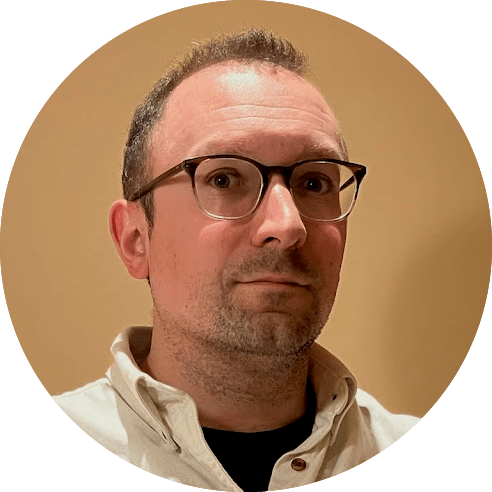Community member Sam Blake
“It’s always been important to me that my job has some kind of positive social impact.”
Pronouns He/him
Roles Lead Data Scientist at Ocado Technology
Data Ambassador with DataKind UK
Links LinkedIn, GitHub, Medium
Sam is a relatively new member of the community, first volunteering during the pandemic, but he’s gotten stuck into several different projects. He’s also a keen musician — maybe a community house band is a possibility!
How did you first get into data — was it what you always wanted to do?
Not at all — when I was at school 10–15 years ago, the job I do now didn’t really exist. After university, I went straight into a PhD in experimental quantum physics, but the main thing I learnt from that was that I didn’t want to be a physicist.
When I finished my PhD in 2016, a lot of companies were starting to hire data scientists, but there wasn’t yet a wide range of Masters programmes and courses designed to train people in machine learning. That meant it was quite easy to move into a data science position from a more general science background, like my own.
I started out doing a data science internship at Royal Mail through the Science to Data Science summer school, and have continued in various data science roles in the logistics and infrastructure space ever since.
What do you wish you’d known when you started to get into data?
Coming from an academic background, I think the biggest difference when using data skills in a business context is that you need to build things that actually work in practice, not just on paper.
When your algorithms are being used for things like ordering food supplies or controlling traffic lights, then reliability becomes more important than accuracy because the consequences of failure are so significant. Always start out with a simple, reliable model to use as a baseline and follow software engineering best practices as much as possible: things like version control, code review, documentation etc.
What drew you to volunteer with DataKind UK?
It’s always been important to me that my job has some kind of positive social impact, and thus far I’ve been lucky in finding roles that align with this: my current role with Ocado focuses on reducing food waste, for example.
I was quite late to the party volunteering with DataKind UK: for my first few years working in data I was living abroad, and then once I moved back to the UK the pandemic began, so it’s only really in the last year or so that I’ve been involved. The appeal of DataKind also grew as I progressed in my career: these days, I look after a few big AI systems and manage quite a large team, so in my day-to-day work, there are few opportunities for scoping out new projects and checking the viability of different approaches. Volunteering with DataKind, especially as a Data Ambassador, was a great opportunity to do more exploratory data science work.
What have you done so far with DataKind UK?
Make it stand out
Whatever it is, the way you tell your story online can make all the difference.
I first volunteered for a DataDive weekend with DEI-focused organisation Inclusion Labs, using survey data to understand perceptions of discrimination within schools. It was a really interesting dataset and a chance to revisit some techniques (Natural Language Processing, dimensionality reduction) that I don’t use so often in my day job.
Make it stand out
Whatever it is, the way you tell your story online can make all the difference.
Shortly after that, DataKind UK started a project with recycling organisation Material Focus, which happened to line up well with my past experience, so I was offered the opportunity of being a Data Ambassador (working with the charity from the beginning to end of the project). The project looked into variations in electrical recycling rates across the UK and how these could be improved.
In the weeks leading up to the DataDive project’s weekend event, me and the three other Data Ambassadors spent time with Material Focus to understand the questions they were looking to answer, and collected and prepared the datasets needed for a weekend of analysis. Most of my time was taken up with trying to request all of the travel time data we needed, while still staying within the free usage limits of the API. At the DataDive weekend, I worked with a small team of volunteers to turn these into some really impactful statistics and visualisations to illustrate recycling location accessibility.
What surprised you most about volunteering with DataKind UK?
The diversity of the volunteers’ professional backgrounds stood out most to me when I attended my first DataDive weekend. Perhaps naïvely, I’d expected a lot of people similar to myself, doing data science jobs at tech companies, but there was everything from university lecturers through to front-end engineers, all with different skill sets (and preferred tools).
Is there a resource or tool you’d recommend to the community?
I’ve recently been using tensorboard’s profiling plugin to dive into some slow-training models, and found it super useful for getting to the bottom of various data pipeline issues.
Tell us something completely non-data-related about yourself!
Outside of work, one of my main passions is music, and over the weekends you can often find me in the various record shops and jazz clubs of east London. Last year I started playing with a Balinese gamelan group, where I happened to bump into another DataKind volunteer!



